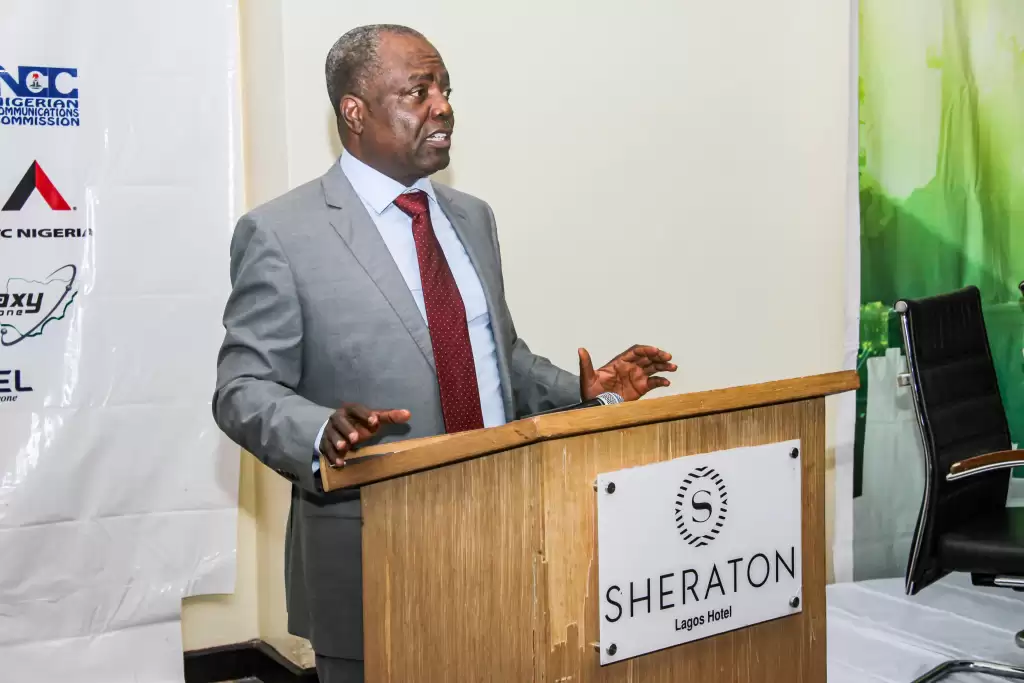
Enhancing Nigeria’s E-Governance: The Need for Improved Connectivity
Experts in the technology and telecommunications sectors have underscored the urgent need to improve digital connectivity to bolster Nigeria’s e-governance capabilities. This was the focal point of discussions at the Nigeria eGovernment Summit 2024, themed “Transforming Governance with Technology for Improved Economy.” The summit brought together industry leaders, government officials, and stakeholders to discuss how technology can play a critical role in enhancing government efficiency and service delivery.
Connectivity: The Foundation of E-Governance
Reuben Oshomah, Regional Director at Avanti Satellite, opened the discussions by emphasizing the fundamental role of connectivity in the successful implementation of e-governance. According to Oshomah, connectivity serves as the bedrock upon which all e-governance solutions rest. He cited Estonia as a prime example of a small European country that has leveraged high levels of connectivity to create one of the most advanced e-governance systems globally. Despite Estonia having only 30% of Nigeria’s population, the country boasts an impressive 90% connectivity rate, illustrating how digital infrastructure can transform governance and service delivery.
In contrast, Nigeria’s broadband penetration remains significantly lower. According to data from the Nigerian Communications Commission (NCC), broadband penetration in the country stood at 43.53% in March 2024, with half of the population still lacking reliable access to the internet, particularly in rural and remote areas. Oshomah stressed that for e-governance to thrive in Nigeria, addressing this connectivity gap is crucial.
Limited E-Government Deployment at State and Local Levels
Lanre Ajayi, Executive Chairman of DigiServe Network Services Limited, highlighted the slow progress in the digital transformation of government services. He pointed out that despite the advancements in digital solutions worldwide, most government processes in Nigeria are still heavily reliant on paper-based systems. According to Ajayi, the adoption of e-governance has been minimal at the state and local government levels, with only a few exceptions such as Lagos State, which has made strides in digitizing services like tax collection.

Ajayi’s comments suggest that while there is progress at the federal level, particularly in urban centers, e-governance deployment in rural and sub-national regions remains virtually non-existent. Without concerted efforts to digitize local government services, many Nigerians, especially those in remote areas, will continue to be left out of the benefits of e-governance.
NCC’s Efforts to Improve Infrastructure and Drive Indigenous Content
Hauwa Buba Wakili, Head of Digital Skills and Services at the NCC, acknowledged the current limitations in Nigeria’s e-governance systems and outlined the steps the Commission is taking to address these issues. Wakili emphasized that infrastructure development has been a major focus for the NCC, with efforts aimed at enhancing connectivity across the country. Additionally, the NCC has introduced policies to promote indigenous content within the telecom sector, including the local manufacturing of SIM cards in Nigeria.
The commission’s strategy also includes capacity building and research and development to ensure that the nation’s digital economy grows in a sustainable and inclusive manner. However, Wakili pointed out that closing the connectivity gap remains a daunting task, particularly given the significant rural-urban digital divide.
Public-Private Partnerships: Key to Achieving Widespread Digital Access
To bridge the digital divide and enhance e-governance in Nigeria, public-private partnerships will be critical. Oshomah of Avanti Satellite reiterated the importance of collaboration between the public and private sectors. He explained that while the private sector can bring technical expertise, innovation, and funding for e-governance projects, the government must play a key role by providing policies, financing, and ensuring a conducive business environment.
Strong partnerships will enable the implementation of large-scale, legitimate projects that can extend digital access to underserved areas. Without such collaboration, achieving widespread e-governance may remain an elusive goal.
The Need for Hybrid Connectivity Solutions
SEE ALSO: NCC Opens 6GHz Spectrum to Address Nigeria’s Network Congestion and Outages
Tayo Adenuga-Taiwo, CEO of Fibreworld Telecommunications Network Limited, emphasized that achieving maximum connectivity in Nigeria will require hybrid solutions. Adenuga-Taiwo explained that while fiber-optic networks offer high-speed connectivity, they cannot reach all areas, especially in remote regions. Therefore, a combination of satellite, radio, and fiber-based technologies must be deployed to ensure that even the most hard-to-reach communities are connected.
He also stressed the need for a robust and enduring infrastructure base to support sustainable e-governance. This infrastructure must not only provide connectivity but also ensure secure and reliable data management systems. According to Adenuga-Taiwo, data security is a major concern for Nigerians, and e-governance systems must be built with strong security measures to protect users’ information.
Data Management and Security Concerns
Data security and management were recurring themes throughout the summit. Adenuga-Taiwo highlighted the importance of proper data management, stating that for e-governance to function effectively, the government must ensure that all relevant arms have access to accurate data. Additionally, citizens need to be assured that their personal information will be protected within these systems. The success of e-governance, therefore, hinges not only on connectivity but also on creating a secure environment where data privacy is prioritized.
Building Digital Literacy and Trust
Another key factor in the success of e-governance is digital literacy. Adenuga-Taiwo noted that for e-governance solutions to be widely adopted, citizens must first be educated on how to use these systems. This will require substantial government investment in digital literacy programs, which will help build trust between the government and the public. By fostering digital skills and improving access to digital resources, the government can encourage more Nigerians to engage with online government services, thereby enhancing transparency and accountability.
The Role of Policy and Leadership
Experts at the summit agreed that improving e-governance is key to promoting transparency, efficiency, and accessibility in government services. Bosun Tijani, Minister of Communications, Innovation, and Digital Economy, emphasized that technology should be leveraged to make it easier for people to access government services. According to Tijani, leadership and clear policies are needed to drive the adoption of e-governance across federal, state, and local government levels.
To support this, the ministry recently released a draft of the National Digital Economy and E-Governance Act, 2024. The proposed act aims to mandate, promote, and enable the digital transformation of public institutions and government processes to ensure efficient and effective service delivery. It represents a significant step forward in Nigeria’s journey toward digital governance.
Conclusion: The Future of E-Governance in Nigeria
Improving e-governance in Nigeria will require a multi-faceted approach that includes expanding connectivity, promoting public-private partnerships, ensuring data security, and building digital literacy. The discussions at the Nigeria eGovernment Summit 2024 highlighted that while progress has been made, there is still much work to be done to ensure that all Nigerians benefit from digital government services.
As the country moves forward, the continued involvement of industry experts, government officials, and private sector leaders will be critical to achieving the goal of a fully digital Nigeria, where government services are accessible, efficient, and secure for all citizens.



